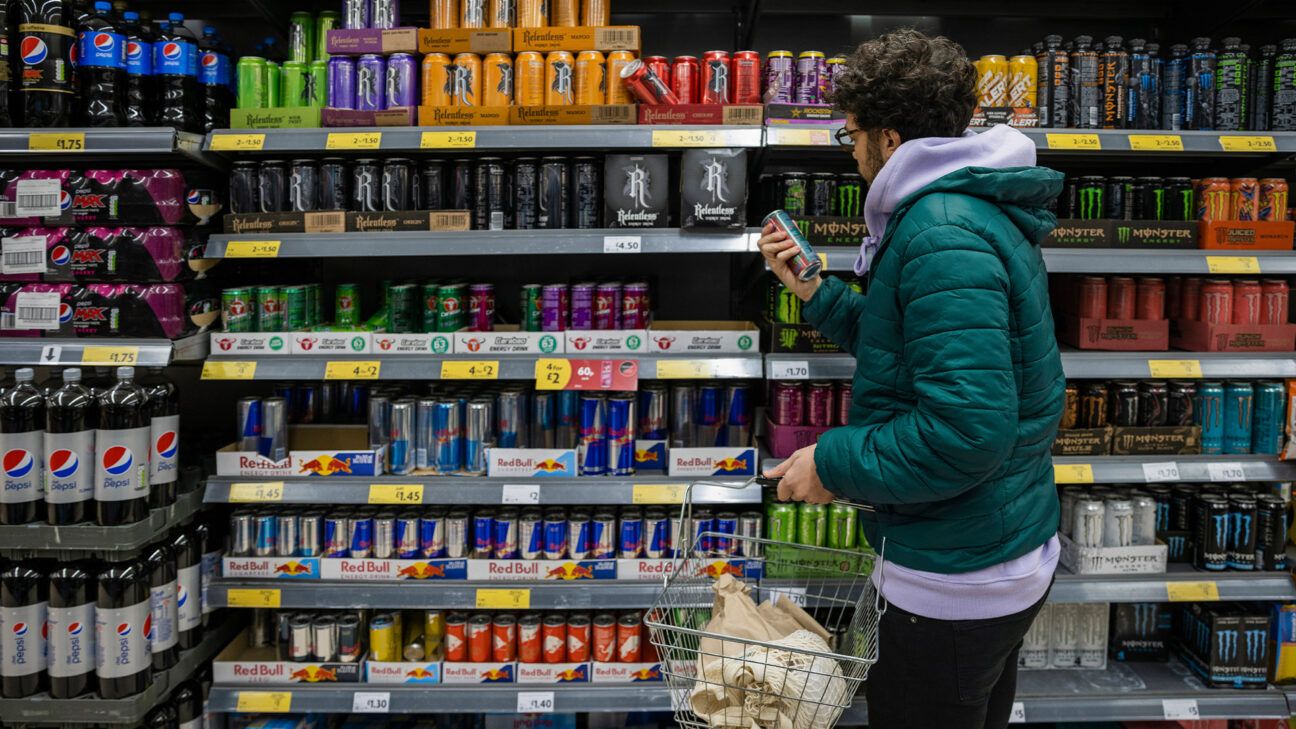
- A new study found a 20% increased risk of atrial fibrillation among participants who reported drinking two liters or more per week of artificially sweetened drinks.
- For those who consumed similar amounts of sugar-sweetened beverages, the risk was 10% higher.
- Cardiologists said high sugar beverage consumption can cause elevated blood pressure, which is a contributing factor for AFib.
- Experts recommended avoiding sugar-sweetened beverages altogether.
Numerous studies show that sugar-sweetened beverage consumption can be a contributing factor for chronic health conditions. These include type 2 diabetes, obesity and heart disease.
Now a new study showed an association between an increased risk of atrial fibrillation (AFib), an irregular heart rhythm, and drinking two liters or more per week of either artificially sweetened or sugary drinks.
The findings were published today in Circulation: Arrhythmia and Electrophysiology.
Two liters of sugary or diet beverages can lead to increased AFib risk
Researchers examined data from 2006 to 2010, which included dietary questionnaires and genetic information for more than 200,000 adults who did not have AFib when they first entered the UK Biobank database. After following up after approximately 10 years, 9,362 participants had AFib.
Results showed the consumption of more than 2 liters/week of sugar-sweetened beverages is associated with 10% increased risk of incident atrial fibrillation (AFib) compared to non-consumers, independently of traditional risk factors.
High sugar beverage consumption is associated with insulin resistance, type 2 diabetes mellitus, weight gain/obesity, fatty liver, and elevated blood pressure.
The risk rises to 20% for individuals consuming artificially sweetened beverages more than 2 liters/week. This means these artificially sweetened drinks, sometimes called diet versions, can surpass the risk associated with sugar-sweetened beverage consumption.
In addition, consuming one liter or less of pure juice per week, such as 100% orange or vegetable juice, was linked with an 8% reduced risk of atrial fibrillation.
“Based on our findings, we recommend people to reduce sugar-sweetened beverages and artificially sweetened beverage consumption to less than 2 liters/week or even avoid whenever possible for heart health,” Dr. Ningjian Wang, M.D., Ph.D., lead study author and researcher at the Shanghai Ninth People’s Hospital and Shanghai Jiao Tong University School of Medicine in Shanghai, China, told Healthline.
“Individuals should be aware of the health risks associated with consuming sweetened beverages,” Wang said. “Switching to healthier alternatives such as water, or moderate fruit juice may help reduce sugar intake and contribute to overall better health. Moreover, it is important not to assume that low-calorie [artificially-sweetened beverage] is automatically healthy, as it also carries potential health risk.”
Why diet beverages may increase AFib risk
Experts say diet soda drinks may contain chemicals that can affect AFib risk.
“Monosodium glutamate (MSG) and aspartame – both of which are found in diet drinks – are found to be excitotoxins of cardiac tissue leading to ‘lone’ atrial fibrillation, which means AFib in the absence of hypertension, heart failure, and coronary artery disease,” said Dr. John P. Higgins MD MBA, a sports cardiologist at McGovern Medical School at UTHealth in Houston.
Can unsweetened juices improve heart health?
Since sweetened juices have been shown to have negative health implications, researchers theorized that unsweetened juices could have the opposite effect.
In the study, researchers also found that drinking one liter or less per week of pure, unsweetened juices like orange or vegetable juice, was linked with a reduced risk of AFib.
“Pure juice has lots of vitamin C and other antioxidants – these are associated with lower blood pressure, reduced oxidative stress, and reduced inflammation – all of which are associated with lower blood pressure and lower rates of atrial fibrillation. In fact, vitamin C has been shown to prevent post-operative atrial fibrillation,” said Higgins.
However, even natural fruit juice can be high in sugar, and many experts recommend people eat whole fruit, which generally has more fiber to slow the absorption of glucose in the bloodstream.
Healthy beverage ideas
So what should you add to your diet to stay healthy? Experts say sticking with water or beverages with electrolytes and no added sugar is always a good idea.
“For most people, just do water or naturally squeezed juice or half/half natural juice-water or water with electrolyte[s] or sports drinks if you are exercising more than 1 hour in duration,” Higgins recommended.
Also, coffee or tea in the early morning prior to exercise is also fine if you need something to wake you up.
“It’s a good idea to cut back on both regular soda and diet soda intake whenever possible,” said Mackenzie Burgess, registered dietitian nutritionist and recipe developer at Cheerful Choices. “Sugar-sweetened beverages and artificially sweetened beverages have been linked to obesity.”
When it comes to swapping out your usual soda or diet soda, consider unsweetened tea, sparkling water for that fizzy fix, or try infusing water with lemon and berries or mint and cucumbers for a subtle boost of flavor, Burgess suggested.
Research has shown that reducing intake of these sweet beverages may lead to weight loss.
Takeaway
There is a 20% increased risk of atrial fibrillation, among participants who reported drinking two liters or more per week (about 67 ounces) of artificially sweetened drinks, according to a new study. For those who drank similar amounts of sugar-sweetened beverages, the risk was 10% higher.
Researchers also found that consuming one liter (about 34 ounces) or less of pure juice per week, such as 100% orange or vegetable juice, was associated with an 8% reduced risk of atrial fibrillation.
Cardiologists said high sugar beverage consumption can cause elevated blood pressure, which is a trigger for developing AFib.
Sugar-sweetened beverages should be cut out completely, experts advised. Instead, drink water and fruit can be added for natural flavor.
Both Diet and Sugary Drinks Linked to Increased AFib Risk, What to Know
Source: Pinoy Lang Sakalam



0 (mga) komento:
Mag-post ng isang Komento